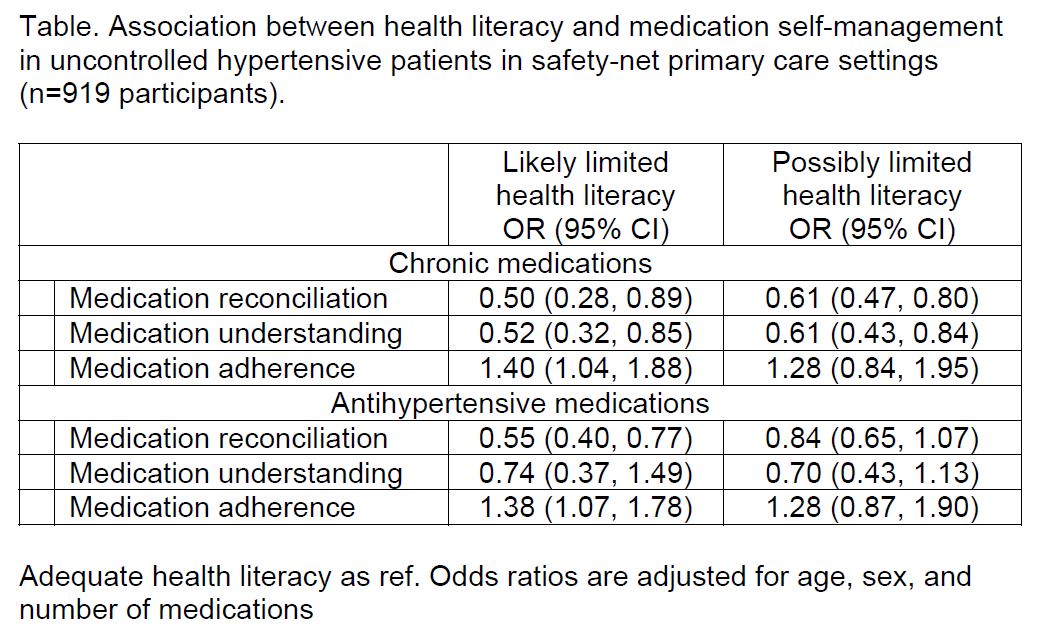Presenting Author:
Kunal Karmali, M.D.
Principal Investigator:
Stephen Persell, M.D.
Department:
Medicine
Keywords:
health literacy, medication self-management, hypertension
Location:
Third Floor, Feinberg Pavilion, Northwestern Memorial Hospital
PH26 - Public Health & Social Sciences
Association between health literacy and medication self-management among uncontrolled hypertensives
Background - Hypertension (HTN) is a chronic condition that often requires complex medication regimens. Patients with limited health literacy can have difficulty performing self-management needed for HTN control. We sought to determine the association between health literacy and medication self-management behaviors in hypertensive adults. Methods - We performed a cross-sectional analysis of adults with uncontrolled HTN recruited for a randomized clinical trial from 12 community health centers in Chicago, IL. Participants were eligible if they were ≥18 years of age with ≥ 3 chronic medications and suboptimal blood pressure control (≥130/≥80 mmHg if diabetic and ≥135/≥85 mmHg if non-diabetic). Baseline health literacy was measured by the Newest Vital Sign. We determined medication reconciliation by blinded physician review of electronic health record-derived medication lists and patient-reported lists for all chronic medications and antihypertensive medications. We measured medication understanding of drug indications by structured questionnaire and adherence by 4-day recall. We determined the association between health literacy and medication reconciliation, medication understanding, and medication adherence using multivariable generalized linear models with clinic-level random effects. Results - Of the 919 participants, 47% were classified as likely limited health literacy (low), 33% as possibly limited health literacy (moderate), and 19% as adequate health literacy. Compared with participants with adequate health literacy, those with low health literacy were less likely to have all chronic medications reconciled (18.6% vs. 30.6%, p=0.005) and more likely to not know the indication for one or more chronic medication (28.0% vs. 14.9%, p=0.003). There was no difference in 4-day recall of adherence (56.2% vs. 46.0%, p=0.077). In adjusted models, there was a step-wise association between degree of health literacy and medication reconciliation and medication understanding (Table). There was an inverse association between degree of health literacy and adherence (Table). Similar findings were observed for antihypertensive medications but results were imprecise. Conclusions - Limited health literacy is highly prevalent among patients with uncontrolled HTN in safety-net primary care settings. Limited health literacy was associated in a graded manner with medication reconciliation discrepancies and medication understanding but not with medication adherence. These results suggest that medication self-management interventions should be tailored to level of health literacy.

